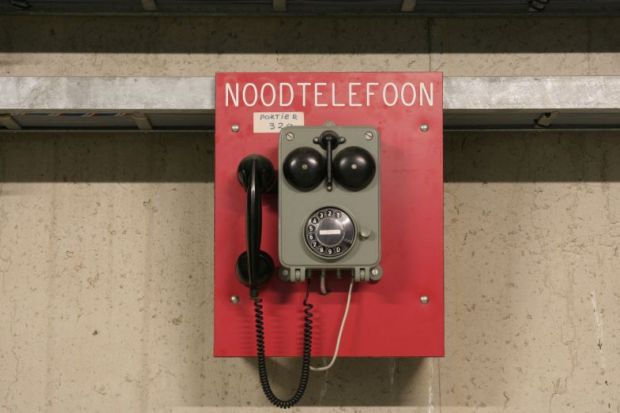The Netherlands’ help desk for research security, staffed by intelligence agency experts, is handling ever more complex questions from universities about potentially risky foreign collaborations, as the nation moves towards legislation on “knowledge security screening” amid rising international scrutiny from governments of research and security.
Dutch education minister Robbert Dijkgraaf said in a letter to parliament that there had been “a significant increase in the number and complexity” of questions from universities, while ministry staff were drafting a Knowledge Security Screening Bill, and he needed the expertise of universities to do so.
Confirmation of the uptick comes a month after the country said it would tighten controls on the export of chipmaking equipment and announced it would host a €1 billion (£875m) Nato innovation fund to invest in technologies with military potential.
At the start of April, the government said further developing the helpdesk and creating a new legal framework for screening students and researchers who work with sensitive technologies were among its top security priorities for 2023-29.
The helpdesk, staffed by civil servants working at innovation, enterprise and intelligence agencies, told local media it had received almost 150 queries in 2022, its first year of operation. Staff told Times Higher Education that the total had risen to about 220 by the start of April 2023.
Some politicians are concerned that Dutch universities have an inconsistent approach to managing security risks from international collaboration. “I know every institution is dealing with this in a different way and they are actually freestyling,” said Hatte van der Woude, a member of parliament for the centre-right People’s Party for Freedom and Democracy, who used to work for the Netherlands’ main intelligence agency, the AIVD.
She praised the engineering-focused University of Twente for requiring that high-risk collaborations be approved by the executive board, rather than a faculty dean. “It’s adult behaviour like that that I’m looking for,” she added.
Marileen Dogterom, president of the Royal Netherlands Academy of Arts and Sciences, said it was “well aware of the friction” between the government’s planned legislation and academic freedom. “We consider it our obligation to keep a keen eye on this and partake in these discussions,” she said.
“I get the feeling universities are very nervous about this and think they will have to screen everybody coming from Russia or China,” said Ms van der Woude, adding that any framework should make clear to staff that nationality is only a risk factor if the candidate works with specific technologies. The minister’s letter was light on details about the draft, but he said it might be necessary to regularly update which academic fields fall under screening, which could apply to international academics from any country outside the European Union.
“The screening can be particularly effective when the process and criteria are transparent,” said Irna van der Molen, a policy adviser for knowledge safety at Twente and chair of a working group on the topic for the umbrella body Universities of the Netherlands. She said universities varied a lot in their screening practices, but were working together on a suite of practical security guides, covering topics such as export control and institutional delegations heading overseas.
Dr Dijkgraaf, who was director of Princeton’s Institute for Advanced Study up to his appointment as minister, told parliamentarians that the advice of the helpdesk was non-binding and staff did not follow up to see whether universities had taken steps to lessen the collaboration risks they raise, although the ministry had been in touch with universities about their risk assessment processes.




